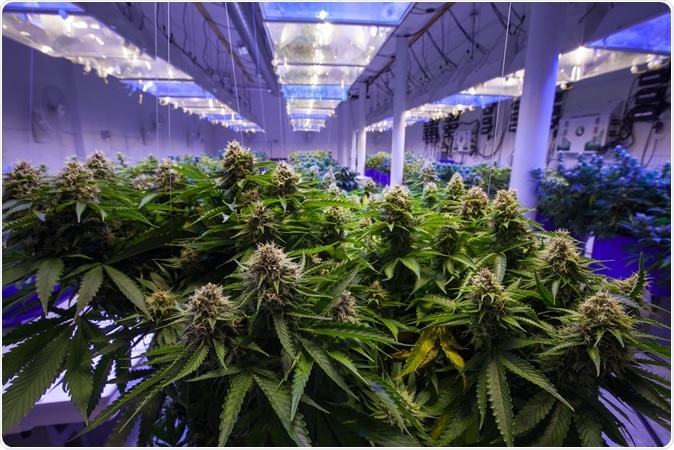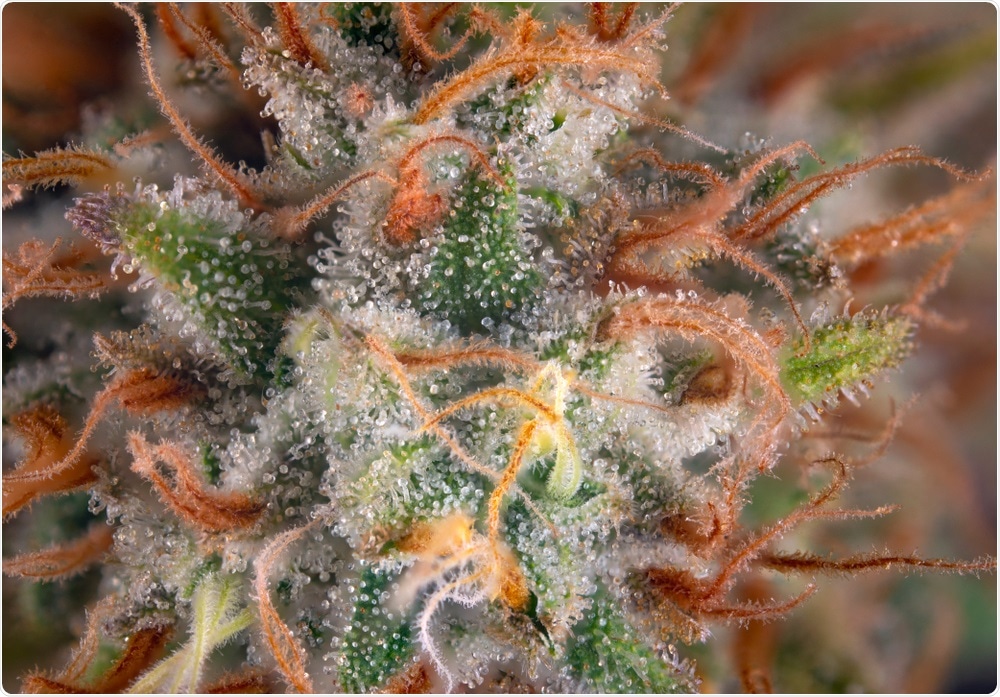The team came to their conclusion after developing a tool to detect the virus because it is not currently screened for across the cannabis supply chain, even though manual contact is involved in growing the flower.
The researchers say that since cannabis dispensaries have become categorized as “essential businesses” during the coronavirus disease 2019 (COVID-19) pandemic, it is advisable to be proactive against risks that could affect this status.
The findings may inform new protective protocols to ensure the cannabis production line is free of SARS-CoV-2, say Yvonne Helbert and colleagues.
A pre-print version of the paper can be accessed in the server bioRxiv*, while the article undergoes peer review.

Study: Quantitative PCR for cannabis flower containing SARs-CoV-2. Image Credit: Canna Obscura / Shutterstock

 *Important notice: bioRxiv publishes preliminary scientific reports that are not peer-reviewed and, therefore, should not be regarded as conclusive, guide clinical practice/health-related behavior, or treated as established information.
*Important notice: bioRxiv publishes preliminary scientific reports that are not peer-reviewed and, therefore, should not be regarded as conclusive, guide clinical practice/health-related behavior, or treated as established information.
Cannabis use has climbed in the U.S. over recent years
Since medicinal cannabis was first legalized in California in 1996, its recreational use remained federally illegal in all states until 2016. Since then, many states have now legalized cannabis, and both its recreational and medical use has climbed considerably, particularly among older individuals.
Now, in 2020, while many others have companies shut down in response to COVID-19 lockdown measures, most U.S. jurisdictions have classified the cannabis industry as an “essential” business. According to the authors, this is presumably due to the high proportion of patients who are served by dispensaries and the resulting increased strain placed on hospitals once dispensaries close.
Concerns in the industry about SARS-CoV-2
Although cannabis farming requires manual contact and some growers have reported employees testing positive for SARS-CoV-2, the virus is not currently screened for across supply chains. Furthermore, a fertilizer called bat guano that is commonly applied to cannabis fields has been identified as a rich source of novel coronaviruses.
To date, no SARS-CoV-2 has ever been detected on cannabis, and there is no evidence to suggest that the plant is a replicative host for the virus, say, Helbert and colleagues, who add that the lighting and curing process might stop cannabis from becoming a productive fomite.
“However, human contact, sneezing or even breathing after curing may still present elevated fomite risk for oral or vaporized routes of administration,” warns the team.
What did the study involve?
“Given cannabis flower is an inhaled product that requires manual contact to grow and trim, we developed tools to detect SARS-CoV-2 RNA within the background cannabis matrix,” writes Helbert and colleagues.
The team modified an existing SARS-CoV-2 quantitative polymerase chain reaction (PCR) assay to contain an additional cannabis control amplicon that would help to avoid the false positives or negatives that could arise due to the complex background matrix of the cannabis flower.
Over seven days, the researchers extracted and quantitated gamma-irradiated SARS-CoV-2 that had been inoculated into hemp flower to estimate its stability as a fomite.
Gamma irradiation is commonly used to comply with lab biosafety laws and ensure that the viruses studied are inactivated while being morphologically intact.
.jpg)
Novel Coronavirus SARS-CoV-2 Colorized scanning electron micrograph of an apoptotic cell (pink) heavily infected with SARS-COV-2 virus particles (green), isolated from a patient sample. Image captured at the NIAID Integrated Research Facility (IRF) in Fort Detrick, Maryland. Credit: NIAID
What did the researchers find?
The gamma-irradiated SARS-CoV-2 was found to be stable on non-sterile cannabis flowers for at least seven days, reports the team.
However, the authors point out that they only assessed irradiated virus, which may have a shorter shelf life due to its attenuated infectability. They say more research is needed to examine the stability of infectious versus non-infectious virus on the cannabis flower.

Macro detail of cannabis flower with visible hairs and trichomes. Image Credit: Roxana Gonzalez / Shutterstock
Ensuring a virus-free production process
The researchers think that since cannabis dispensaries have now been deemed “essential” businesses, it would be advisable to be proactive rather than reactive in dealing with any factors that could suddenly mean this status is retracted.
“While chances of cannabis supply chain contamination with SARS-CoV-2 are remote, the RNA of the virus is stable on unsterilized cannabis flower for over 7 days and may inform personal protective gear protocols or sterilization techniques to ensure a virus free production process,” they write.
The team also advises that a published SARS-CoV-2 surveillance method could help preparedness among communities and aid the management of supply chains.
The researchers say the sensitivity of the test is comparable with those reported for nasopharyngeal swabs and other amplification assays used for early detection.
“The current COVID epidemic is a reminder of the importance of pre-emptive testing readiness, and we believe these methods can contribute towards such goals,” write Helbert and the team.

 *Important notice: bioRxiv publishes preliminary scientific reports that are not peer-reviewed and, therefore, should not be regarded as conclusive, guide clinical practice/health-related behavior, or treated as established information.
*Important notice: bioRxiv publishes preliminary scientific reports that are not peer-reviewed and, therefore, should not be regarded as conclusive, guide clinical practice/health-related behavior, or treated as established information.